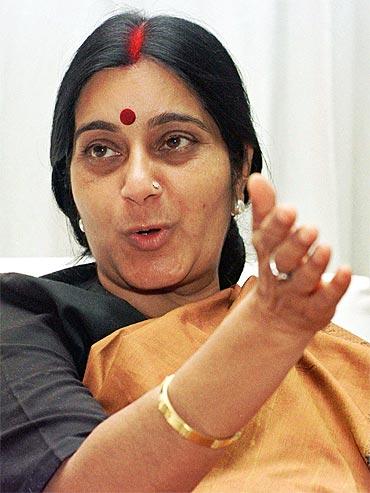
The new Lokpal Bill was introduced by Parliamentary Affairs Minister Pawan Bansal in Lok Sabha on Thursday after an hour-long acrimonious debate among members of various political parties.
Leader of the Opposition, Sushma Swaraj raised objections against some points included in the Bill. She took strong exception to 50 per cent reservations for the minority community and SC, ST, Backward and other classes.
"The Supreme court had passed an order that reservations should not exceed more than 50 per cent and the reservation for Minorities in the Lokpal bill violates that. The house should not pass a Bill that is adopted one day and struck down by the apex court the next day for violation of its directive," she said.
...
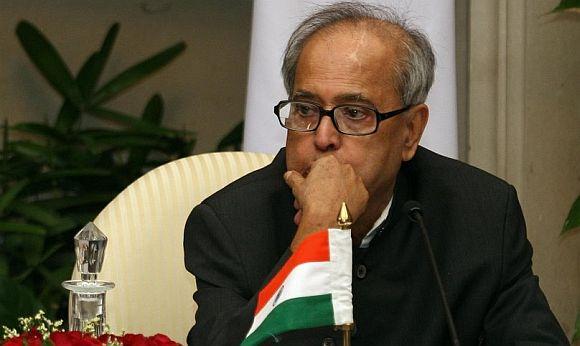
"My second objection is that the Bill violates the spirit of federalism as it makes it mandatory for the states which have already have their own Lokayuktas and effective ones to follow Lokpal Bill", she added.
Union Finance Minister and leader of the house Pranab Mukherjee said that the house has a duty to do.
"Our job is to legislate and not worry about the Bill being struck down by the apex court," he countered. He chided those who said that why the government was in a hurry to pass the Bill.
...

Rashtriya Janata Dal chief Lalu Prasad Yadav regaled the house with his typical speech delivery. He said that Swaraj was once a socialist and now she has switched sides.
"The country will not forgive us if we fail to in our duty to and pass the Bill in haste," he said.
Senior Communist Party of India leader Gurudas Dasgupta appealed to the government and members of Parliament, "Let us not surrender the supremacy of the house by hurrying under pressure from anyone. Let the government not be afraid of someone who is trying to project himself as another father of the nation. Let nobody be above the law," he said amid applause from both the treasury and opposition benches.
Click NEXT to read Salient features of the new Bill...
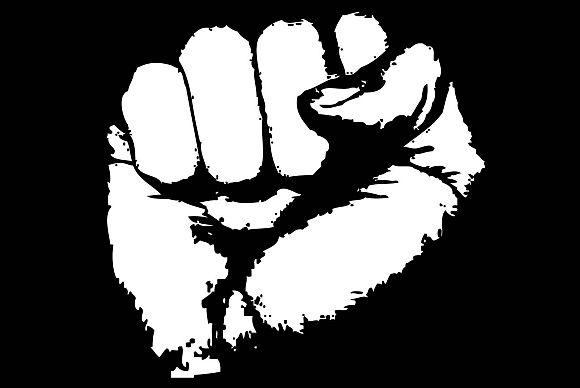
An institution called Lokpal at the centre and Lokayukta will be set up in each state. Just like the Supreme Court, and Election Commission, they will be independent of the governments. No minister or bureaucrat will be able to influence their investigations.
Cases against the corrupt will not linger on for years anymore: Investigations will have to be completed in one year. The trial should be completed in one year so that the corrupt politician, officer or judge is sent to jail within two years.
The loss that a corrupt person caused to the government will be recovered at the time of conviction.
...
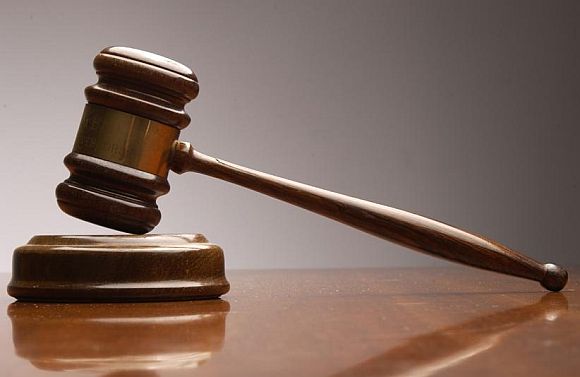
If any work of any citizen is not done in prescribed time in any government office, the Lokpal will impose financial penalty on guilty officers, which will be given as compensation to the complainant.
You could approach Lokpal if your ration card or passport or voter card is not being made or if police is not registering your case or any other work is not being done in prescribed time.
The Lokpal will have to get it done in a month's time. You could also report any case of corruption to Lokpal such as ration being siphoned off, poorly-constructed roads or panchayat funds being misused.
The Lokpal will have to complete its investigations in a year; trial will be over in next one year and the guilty will go to jail within two years.
But won't the government appoint corrupt and weak people as Lokpal members?
That won't be possible because its members will be selected by judges, citizens and constitutional authorities and not by politicians, through a completely transparent and participatory process.
...
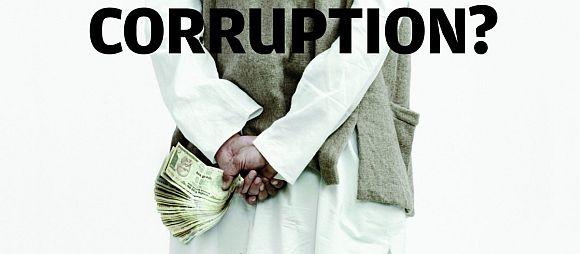
The entire functioning of Lokpal/ Lokayukta will be completely transparent. Any complaint against any officer of Lokpal shall be investigated and the officer dismissed within two months.
What will happen to the existing anti-corruption agencies?
The Central Vigilance Commission, departmental vigilance and anti-corruption branch of Central Bureau of Investigation will be merged into Lokpal.
Lokpal will have complete powers and machinery to independently investigate and prosecute any officer, judge or politician.
It will be the duty of the Lokpal to provide protection to those who are being victimised for raising their voice against corruption.